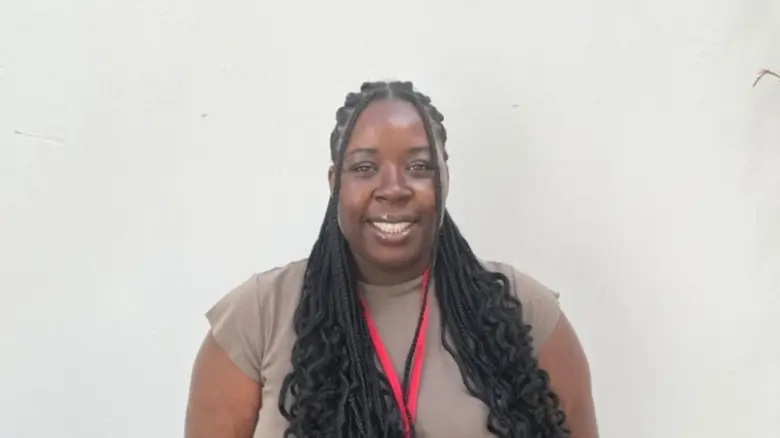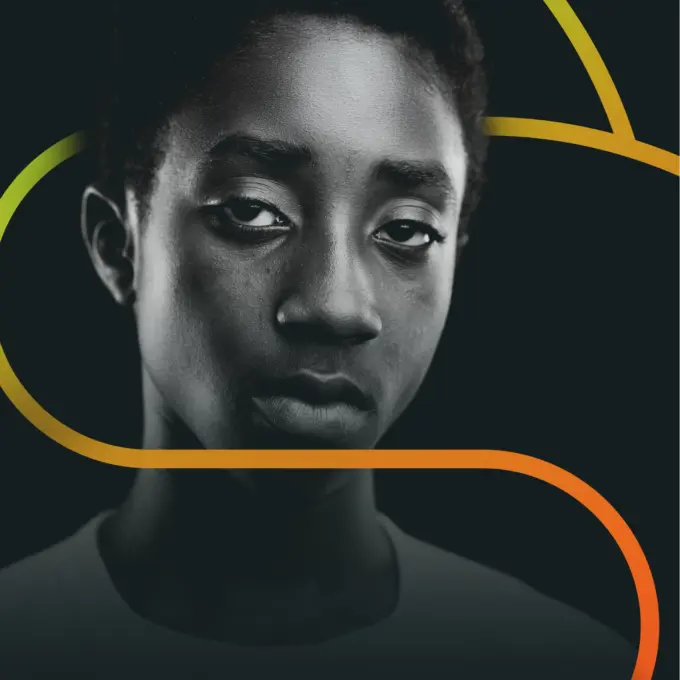
How Caseworkers Can Be Part of the Solution to Young Londoner's Mental Health Challenges
These days, young Londoners face challenges trying to secure the basics for their wellbeing - such as money, a place to call home, feeling supported and belonging to a community. It's no wonder that today's youth are feeling lonelier and are dealing with mental health challenges more than past generations.
When a young Londoner is having a hard time with their mental health, they typically turn to someone they trust first. This trusted individual isn’t imposed upon them; rather, it’s a person they choose themselves. Given the nature of our work, we often find that young Londoners choose Safer London Caseworkers as their trusted adult. Our Caseworkers play a vital role in bridging a gap where formal mental health support may not be suitable. They offer empathetic listening and care, intervening in a way that prevents problems worsening for young Londoners.
Supporting young Londoners with their mental health and emotional wellbeing is a crucial part of our Caseworkers’ role. It’s so important for young Londoners to have someone reliable to confide in and to experience the security that brings. However, when listening falls short, directing them to professional mental health services becomes essential.
Where the challenges facing young Londoners often go unnoticed, there are people working behind the scenes. We chatted with Yvonne, Safer London's Expert Caseworker, about how she supports the mental health journey of young Londoners.

How do you respond when a young Londoner opens up to you about their mental health?
The first thing I do is thank them. It’s not always easy for young Londoners to open up about a difficulty they’re facing, especially if they don't understand what’s going on. If they’re opening up to me then they trust me, and it’s not always easy to gain a young Londoner’s trust. In a lot of cases, the young Londoners we support have had a lot of professionals coming in and out of their lives and so just acknowledging their vulnerability and thanking them is the first thing I do. I will also always let them know that it’s okay to feel this way and that they’re not alone. There are always others who are feeling the exact same way as them.
What do you think the barriers are to young Londoners opening up about their mental health?
Young Londoner’s’ mental health is often pushed aside. Society will often respond with ‘they’re going through puberty’, ‘it’s their hormones’, or ‘they’re just attention seeking’ - that’s a big one! If you don’t take a young Londoner seriously when they first open up to you, it will stop them from wanting to do it again. I’ve also noticed young Londoners will often test the waters first by telling a family member or a professional that their friend is struggling with their mental health, when really they are the ones struggling. It’s important to answer any question with care as you never know, they could be referring to themselves.
I like to have a Wellbeing Toolbox with me at sessions. The idea is that a young Londoner fills it with things that make them smile, so when they’re feeling down, they can open the box and pick something out of it.
How do you run a session with a young Londoner that is struggling with their mental health?
I like to have a Wellbeing Toolbox with me at sessions. The idea is that a young Londoner fills it with things that make them smile, so when they’re feeling down, they can open the box and pick something out of it. Sometimes the boxes have objects like a stress ball, or sometimes they have activations that will say ‘talk to mum’ or ‘spend time in nature’ for example, so that the young Londoner is reminded to do something that is special to them. The idea is that the box is tailored and personal to each young Londoner.
The work you do can sometimes be overwhelming. How do you look after yourself when you're feeling stressed from work?
I’ve been working with young people and adults in a therapeutic space for the last 5 years and the one thing that has always helped me is listening to music. I’ve loved music for a long time. It helps to take me into another space, another world, another mindset. Listening to a happy song will make me happy! Music can honestly change my mood completely, so personally that works for me.
What is your favourite aspect of your role?
My favourite part of my role is watching the young Londoners grow. Seeing them gain confidence in themselves to take on the challenges that they’re going through and being able to show them the progress they are making is so rewarding.

Interested in how our Caseworkers support young Londoners with neurodiverse needs who are affected by violence?
Read our blog with Lee
GO TO BLOG